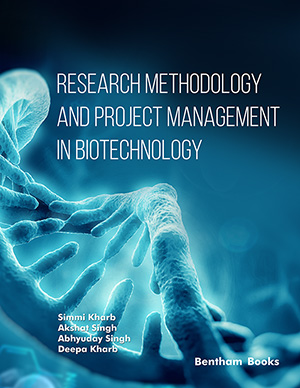
Abstract
The pharmacological treatments that are now recommended for the therapy of chronic illnesses are examined in a great number of studies to determine whether or not they are both safe and effective. Therefore, it is important to investigate various alternative therapeutic assistance, such as natural remedies derived from medicinal plants. In this context, chicoric acid, classified as a hydroxycinnamic acid, has been documented to exhibit a range of health advantages. These include antiviral, antioxidant, anti-inflammatory, obesity-preventing, and neuroprotective effects. Due to its considerable pharmacological properties, chicoric acid has found extensive applications in food, pharmaceuticals, animal husbandry, and various other commercial sectors. This article provides a comprehensive overview of in vitro and in vivo investigations on chicoric acid, highlighting its beneficial effects and therapeutic activity when used as a preventative and management aid for public health conditions, including diabetes, cardiovascular disease, and hepatic illnesses like non-alcoholic steatohepatitis. Moreover, further investigation of this compound can lead to its development as a potential phytopharmaceutical candidate.
Keywords: Chicoric acid, hydroxycinnamic acid, chicory, cancer, inflammation, oxidative stress.
[http://dx.doi.org/10.1021/jf4046232] [PMID: 24428171]
[http://dx.doi.org/10.1089/jmf.2018.0211] [PMID: 30897018]
[http://dx.doi.org/10.3389/fchem.2013.00040] [PMID: 24790967]
[http://dx.doi.org/10.1007/978-3-0348-8763-2_2]
[http://dx.doi.org/10.1093/ajcn/87.2.488S] [PMID: 18258644]
[http://dx.doi.org/10.1016/j.indcrop.2011.02.010]
[http://dx.doi.org/10.1021/acs.jafc.9b00705] [PMID: 30835107]
[http://dx.doi.org/10.1078/094471103321648692] [PMID: 12622467]
[http://dx.doi.org/10.1155/2013/579319] [PMID: 24379887]
[http://dx.doi.org/10.1039/c1fo10112a] [PMID: 21847499]
[http://dx.doi.org/10.1002/jsfa.5947] [PMID: 23152184]
[http://dx.doi.org/10.1016/j.foodchem.2009.11.010]
[http://dx.doi.org/10.1017/S0007114510004344] [PMID: 21134333]
[http://dx.doi.org/10.1016/j.talanta.2005.01.028] [PMID: 18970094]
[http://dx.doi.org/10.1016/S0031-9422(00)00425-8] [PMID: 11281131]
[http://dx.doi.org/10.1002/pca.2411] [PMID: 23172832]
[http://dx.doi.org/10.3390/molecules27092632] [PMID: 35565983]
[http://dx.doi.org/10.1002/hep.27406] [PMID: 25164003]
[http://dx.doi.org/10.1155/2020/9734560] [PMID: 33204402]
[http://dx.doi.org/10.1080/13813455.2020.1789881] [PMID: 32654534]
[http://dx.doi.org/10.1021/acs.jafc.8b02147] [PMID: 30036051]
[http://dx.doi.org/10.1002/mnfr.201600632] [PMID: 27981809]
[http://dx.doi.org/10.1007/s11356-020-08557-y] [PMID: 32246423]
[http://dx.doi.org/10.1016/j.biopha.2018.05.081] [PMID: 29803928]
[http://dx.doi.org/10.1038/ki.2014.293] [PMID: 25229340]
[http://dx.doi.org/10.1517/17460441.2013.793667] [PMID: 23627598]
[http://dx.doi.org/10.1007/s00011-019-01241-z] [PMID: 31037316]
[http://dx.doi.org/10.1021/acs.jafc.1c07795] [PMID: 35195395]
[http://dx.doi.org/10.4103/0019-509X.200658] [PMID: 28244479]
[PMID: 29949179]
[http://dx.doi.org/10.1016/j.biopha.2019.109144] [PMID: 31545234]
[http://dx.doi.org/10.1016/j.jep.2012.08.032] [PMID: 22971663]
[http://dx.doi.org/10.1097/FBP.0000000000000505] [PMID: 31625975]
[http://dx.doi.org/10.1007/s12017-019-08590-2] [PMID: 31916219]
[http://dx.doi.org/10.1111/cbdd.14210] [PMID: 36752710]
[http://dx.doi.org/10.1007/s43450-022-00277-3]
[http://dx.doi.org/10.3390/ijms23042031] [PMID: 35216146]
[http://dx.doi.org/10.1039/D1FO02216D] [PMID: 35103734]
[http://dx.doi.org/10.1021/acs.jafc.6b04873] [PMID: 28002939]
[http://dx.doi.org/10.1016/j.pbb.2011.05.008] [PMID: 21620882]
[http://dx.doi.org/10.1515/jbcpp-2017-0079] [PMID: 29672269]
[http://dx.doi.org/10.1186/s11671-019-3042-7] [PMID: 31290033]
[http://dx.doi.org/10.1038/ni.2022] [PMID: 21478880]
[http://dx.doi.org/10.1006/abbi.1996.9874] [PMID: 9056264]
[http://dx.doi.org/10.1021/jm9607360] [PMID: 9003513]
[http://dx.doi.org/10.1055/s-2000-8561] [PMID: 10821047]
[http://dx.doi.org/10.1016/0891-5849(95)00052-Y] [PMID: 8529913]
[http://dx.doi.org/10.1016/j.bbrc.2008.09.088] [PMID: 18834859]
[http://dx.doi.org/10.1021/acs.jafc.5b04533] [PMID: 26592089]
[http://dx.doi.org/10.1016/j.fct.2017.06.041] [PMID: 28655651]
[http://dx.doi.org/10.1016/j.jep.2013.09.046] [PMID: 24126061]
[http://dx.doi.org/10.1002/cbdv.201500180] [PMID: 27218231]
[http://dx.doi.org/10.1016/j.cyto.2018.12.012] [PMID: 30690290]
[http://dx.doi.org/10.1007/s40200-022-01134-9] [PMID: 37255837]
[http://dx.doi.org/10.1016/j.intimp.2022.109129] [PMID: 35961266]
[http://dx.doi.org/10.18632/oncotarget.16768] [PMID: 28410194]
[http://dx.doi.org/10.1016/j.redox.2017.11.012] [PMID: 29175753]
[http://dx.doi.org/10.1021/acs.jafc.0c07521] [PMID: 33577312]
[http://dx.doi.org/10.1142/S0192415X18500179] [PMID: 29433395]
[http://dx.doi.org/10.1142/S0192415X23500659] [PMID: 37530505]
[http://dx.doi.org/10.1111/jcmm.14935] [PMID: 31989756]
[http://dx.doi.org/10.1016/j.nut.2013.11.015] [PMID: 24985007]
[http://dx.doi.org/10.1039/C9FO01417A] [PMID: 31501849]
[PMID: 29434748]
[http://dx.doi.org/10.1016/j.ecoenv.2019.05.040] [PMID: 31108416]
[http://dx.doi.org/10.1142/S0192415X1450044X] [PMID: 24871659]
[http://dx.doi.org/10.1080/10799893.2020.1817076] [PMID: 32900249]
[http://dx.doi.org/10.1371/journal.pone.0078788] [PMID: 24244361]
[http://dx.doi.org/10.1080/09168451.2018.1451742] [PMID: 29557265]





























